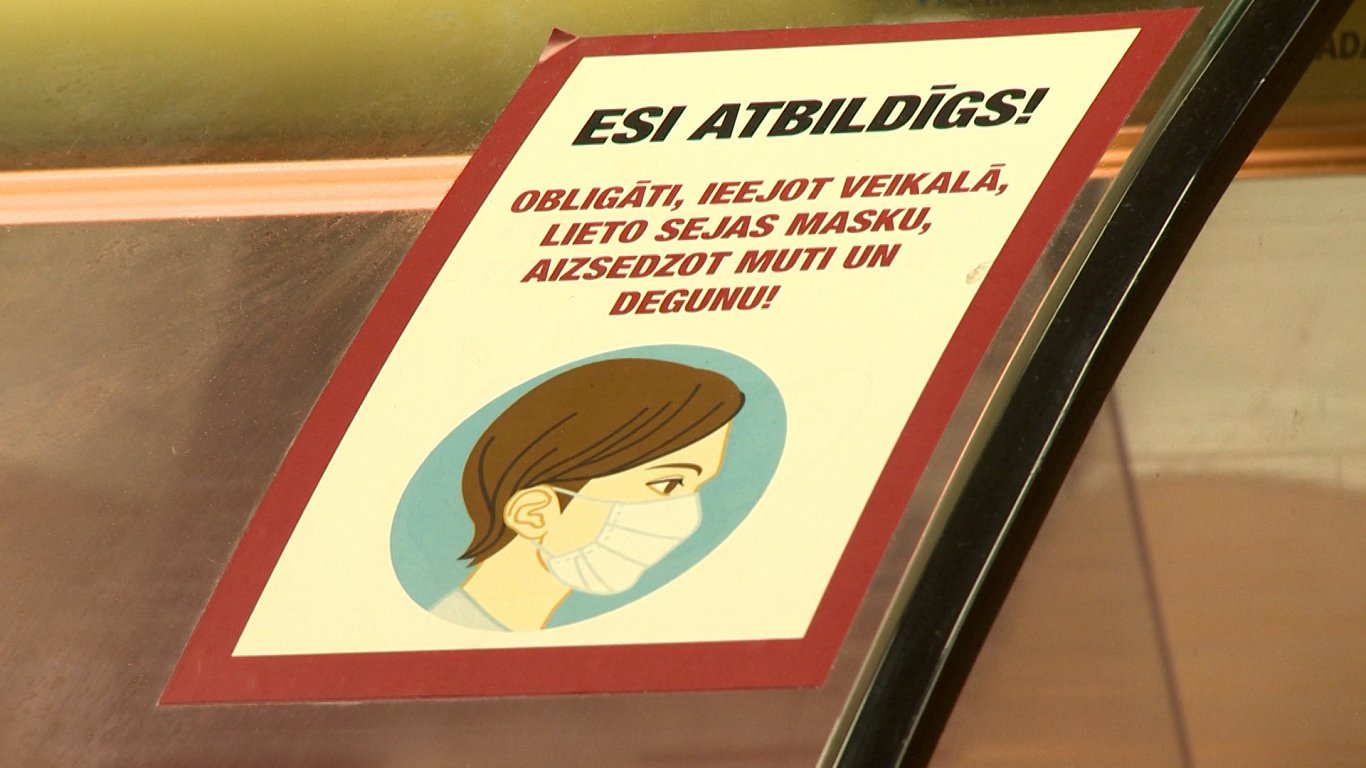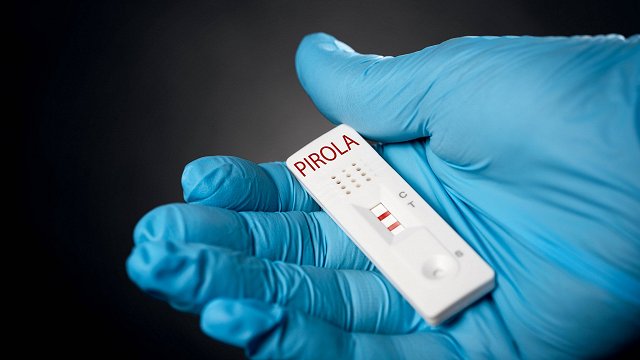You can find more details at the official government website and the dedicated national COVID-19 information website. There is also the Health Ministry website itself (in Latvian only).
The text below is reproduced without editing by LSM.
Safety measures imposed from 21 December for the three-week period will be aimed at ensuring that each of us meets as few other people as possible outside our own household. This will help us protect ourselves and others from possible infection with Covid-19. The Ministry of Health understands that this will create difficulties and complicate everyday life, but at the same time asks every citizen to cooperate so that together we can reduce the spread of the infection and not overload hospitals to allow them to help patients in emergencies.
Today, on 17 December, the government decided to make amendments to Cabinet of Ministers Order No. 655 "Regarding Declaration of the Emergency Situation", strengthening safety measures from 21 December to 11 January.
Why are additional safety measures required?
At the moment, it is very important to decrease visits of people to places where it is possible to meet other people. Any such meeting with someone you know or a stranger carries a higher risk of getting yourself infected or infecting other people, whether it is a shop, public transport, a workplace, a beauty salon, or any other public place, especially indoors. Epidemiological analysis and forecasts suggest that if the spread of Covid-19 continues at its current rate, the number of Covid-19 patients in hospitals will exceed 1,000 in the next two weeks. Therefore, every effort should be made to reduce the chances of people becoming ill.
Analysing people's habits, the European Centre for Disease Prevention and Control (ECDC) points out that people's mobility increases during the holidays: people gather, use public transport frequently, spend time in shops and in less ventilated areas, want to meet relatives, leading to higher risks of spreading the infection. Already now the ECDC emphasises that we need to be prepared for a more rapid increase of Covid-19 after the holidays. At the current level of morbidity, Latvia can no longer afford it.
The safety measures already in place were aimed at reducing crowds, but public mobility indicators demonstrate that people in Latvia are still actively moving to shops, places of interest, as well as going to work in person and continuing to use public transport. On the other hand, during the holidays, when restrictions are imposed, the shopping intensity is significantly lower. At the same time, people still spend time actively on weekends in municipalities with a strong holiday activity trend. This shows that public transport is still actively used, people gather in public places, etc.
What additional safety measures will be in place from 21 December to 11 January to reduce the number of possible contacts?
In education:
-
Winter holidays will be extended for 1 week until 8 January for pupils from grade 1 to grade 6.
-
There will be no practical classes in person (also not individually). Also in professional and higher education, various courses, etc. classes may only take place remotely. The exception is clinical training in residency.
-
Interest-related education and various practices can take place only remotely.
In sports:
-
Amateur sports training will only be allowed outdoors (up to 10 people without the use of changing rooms). This means that sports clubs will not accept clients indoors - the gyms will not work and people will not be able to go to the club to train individually.
In culture:
-
Libraries, exhibition sites and other cultural venues will not work, and it will also not be allowed to organise fairs (including Christmas markets).
-
Indoor premises of museums will be closed for visitors, but the open-air areas of museums will continue to operate, where it will be necessary to ensure the one-way movement of people, prevent collisions of human flows, and ensure a distance of at least 2 metres. Nature trails will also be able to operate under such conditions.
-
Services:
-
Entire beauty industry (including hairdressers) will not work.
-
Sports equipment rental services may only be provided outdoors.
-
Photo shoots and photo services other than for document photos will not take place.
-
There will be no drive hunting.
These services are limited by evaluating several aspects: whether the service is provided for more than 15 minutes (with time in the waiting room), whether there is direct human contact during the provision of the service, whether it is possible to use a face mask (e.g. not used at the beautician and in photo shoots) and putting the main emphasis on the criterion of whether a person can do without this service for 3 weeks. The goal is to reduce the number of people we meet on a daily basis.
In sales:
From 19 December to 11 January, the rules that were until now applied to holidays and public holidays will apply on a daily basis, but the product groups that may be sold during this period will be expanded. This means that during these 3 weeks only the following shall operate:
-
pharmacies (including veterinary pharmacies),
-
optical goods stores.
-
fuel stations,
-
points of sale where the following groups of goods may be sold:
-
groceries;
-
hygiene products;
-
essential household goods;
-
construction goods (construction products) in wholesale;
-
mobile phone prepaid cards;
-
tobacco products, herbal smoking products, electronic smoking devices and their liquids;
-
animal feed and goods;
-
press publications;
-
public transport tickets;
-
mouth and nose coverings and individual protective equipment;
-
home-made agricultural products;
-
flowers and Christmas trees.
-
Ministry of Economics will prepare a more detailed regulation for the points of sale, including lists of goods. Additionally, we would like to note that the sale of goods on the internet is not restricted.
At the same time, the requirements for points of sale have been reinforced: at least 15 m2 of the available space will have to be provided for one visitor (excluding the area occupied by shelves, equipment, etc.), the number of visitors cannot exceed the number of available trolleys/carts, and visitors must attend the store alone (it is allowed to bring children under the age of 12 or an assistant if necessary).
Work places:
-
The amendments to the Order especially emphasise that anyone who is allowed to work remotely from home must do so. It is the Employer's responsibility to provide this. These conditions apply to both public administration and local government institutions and private companies. This means that salespeople, drivers, stackers, police officers, firefighters, security guards, radio and television announcers and operators, doctors, and others, but not, for example, office workers, will work in person.
The norm regarding catering has also been clarified - only production companies, where it is not possible to provide safe eating breaks, will be allowed to provide catering on site, if only those people who work together on a daily basis also eat together and only one person sits at the table and the 2 m distance is observed.





























